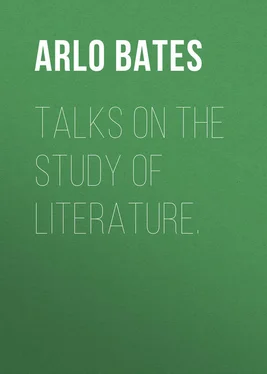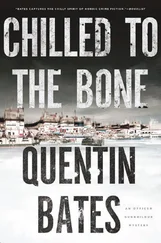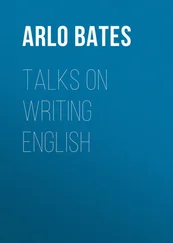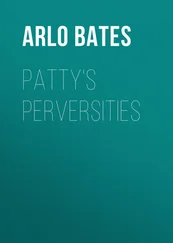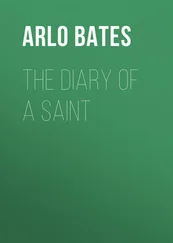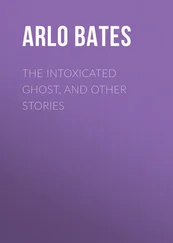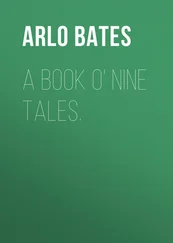Arlo Bates - Talks on the study of literature.
Здесь есть возможность читать онлайн «Arlo Bates - Talks on the study of literature.» — ознакомительный отрывок электронной книги совершенно бесплатно, а после прочтения отрывка купить полную версию. В некоторых случаях можно слушать аудио, скачать через торрент в формате fb2 и присутствует краткое содержание. Жанр: foreign_antique, foreign_prose, на английском языке. Описание произведения, (предисловие) а так же отзывы посетителей доступны на портале библиотеки ЛибКат.
- Название:Talks on the study of literature.
- Автор:
- Жанр:
- Год:неизвестен
- ISBN:нет данных
- Рейтинг книги:5 / 5. Голосов: 1
-
Избранное:Добавить в избранное
- Отзывы:
-
Ваша оценка:
- 100
- 1
- 2
- 3
- 4
- 5
Talks on the study of literature.: краткое содержание, описание и аннотация
Предлагаем к чтению аннотацию, описание, краткое содержание или предисловие (зависит от того, что написал сам автор книги «Talks on the study of literature.»). Если вы не нашли необходимую информацию о книге — напишите в комментариях, мы постараемся отыскать её.
Talks on the study of literature. — читать онлайн ознакомительный отрывок
Ниже представлен текст книги, разбитый по страницам. Система сохранения места последней прочитанной страницы, позволяет с удобством читать онлайн бесплатно книгу «Talks on the study of literature.», без необходимости каждый раз заново искать на чём Вы остановились. Поставьте закладку, и сможете в любой момент перейти на страницу, на которой закончили чтение.
Интервал:
Закладка:
To a great extent is it also true that modern society expects a knowledge of social conditions and æsthetic affairs in the past. This is not so much history, formally speaking, as it is the result of a certain familiarity with the ways, the habits of thought, the manners of bygone folk. Professor Barrett Wendell has an admirable phrase: "It is only in books that one can travel in time." What in the present state of society is expected from the accomplished man or woman is that he or she shall have traveled in time. He shall have gone back into the past in the same sense as far as temper of mind is concerned that one goes to Europe; shall have observed from the point of view not of the dry historian only, but from that of the student of humanity in the broadest sense. It is the humanness of dwellers in distant lands or in other times which most interests us; and it is with this that he who would shine in social converse must become familiar.
The position in which a man finds himself who in the company of educated men displays ignorance of what is important in the past is illustrated by a story told of Carlyle. At a dinner of the Royal Academy in London, Thackeray and Carlyle were guests, and at the table the talk among the artists around them turned upon Titian. "One fact about Titian," a painter said, "is his glorious coloring." "And his glorious drawing is another fact about Titian," put in a second. Then one added one thing in praise and another another, until Carlyle interrupted them, to say with egotistic emphasis and deliberation: "And here sit I, a man made in the image of God, who knows nothing about Titian, and who cares nothing about Titian; – and that's another fact about Titian." But Thackeray, who was sipping his claret and listening, paused and bowed gravely to his fellow-guest. "Pardon me," he said, "that is not a fact about Titian. It is a fact – and a very lamentable fact – about Thomas Carlyle." Attempts to carry off ignorance under the guise of indifference or superiority are common, but in the end nobody worth deceiving is misled by them.
It is somewhat trite to compare the companionship of good books to that of intellectual persons, and yet the constant repetition of a truth does not make it false. To know mankind and to know one's self are the great shaping forces which mould character. It has too often been said to need to be insisted upon at any great length that literature may largely represent experience; but it may fitly be added that in reading one is able to choose the experiences to which he will be exposed. In life we are often surrounded by what is base and ignoble, but this need not happen to us in the library unless by our deliberate choice. Emerson aptly says: —
Go with mean people and you think life is mean. Then read Plutarch, and the world is a proud place, peopled with men of positive quality, with heroes and demigods standing around us, who will not let us sleep.
It so often happens that we are compelled in daily life to encounter and to deal with mean people that our whole existence would be in great danger of becoming hopelessly sordid and mean were it not for the blessed company of great minds with whom we may hold closest communion through what they have written.
One more point in regard to the social influence of reading should be mentioned. Social ease and aplomb can of course be gained in no way save by actual experience; but apart from this there is nothing else so effective as familiarity with the best books. Sympathetic comprehension of literature is the experience of life taken vicariously. It is living through the consciousness of others, and those, moreover, who are the cleverest and most far-reaching minds of all time. The mere man of books brought into contact with the real world is confused and helpless; but when once the natural shyness and bewilderment have worn off, he is able to recall and to use the knowledge which he has acquired in the study, and rapidly adapts himself to any sphere that he may find himself in. I do not mean that a man may read himself into social grace and ease; but surely any given man is at a very tangible advantage in society for having learned from books what society is.
IV
WHY WE STUDY LITERATURE
In all that is said in the last chapter we have dealt only with the outward and accidental, barely touching upon the really significant and deeper meanings of our subject. The third object which I named, the gaining a knowledge of life, transcends all others.
The desire to fathom the meaning of life is the most constant and universal of human longings. It is practically impossible to conceive of consciousness separated from the wish to understand self and the significance of existence. This atom selfhood, sphered about by the infinite spaces of the universe, yearns to comprehend what and where it is. It sends its thought to the farthest star that watches the night, and thence speeds it down the unsounded void, to search unweariedly for the answer of the baffling, insistent riddle of life. Whatever man does or dreams, hopes or fears, loves or hates, suffers or enjoys, has behind it the eternal doubt, the question which man asks of the universe with passionate persistence, – the meaning of life.
Most of all does man seek aid in solving this absorbing mystery. Nothing else interests the human like the human. The slatternly women leaning out of tenement-house windows and gossiping across squalid courts talk of their neighbors. The wisest philosopher studies the acts and the thoughts of men. In the long range between these extremes there is every grade of intelligence and cultivation; and in each it is the doings, the thoughts, most of all the feelings, of mankind which elicit the keenest interest. The motto of the Latin playwright is in reality the motto of the race: "Nothing human is indifferent to me."
We are all intensely eager to know what are the possibilities of humanity. We seek knowledge of them as an heir questions searchingly concerning the extent of the inheritance which has fallen to him. Literature is the inventory of the heritage of humanity. Life is but a succession of emotions; and the earnest mind burns with desire to learn what emotions are within its possibilities. The discoverer of an unsuspected capability of receiving delight, the realization of an unknown sensation, even of pain, increases by so much the extent of the possessions of the human being to whom he imparts it. As explorers in a new country tell one another of the springs upon which they have chanced, of the fertile meadows one has found, of the sterile rocks or the luscious jungle, so men tell one another of their fresh findings in emotion. The knowledge of life – this is the passionate quest of the whole race of men.
All that most deeply concerns man, all that reaches most penetratingly to the roots of being, is recorded, so far as humanity has been able to give to it expression, in art. Of all art, literature is perhaps the most universally intelligible; or, if not that, it is at least the most positively intelligible. Our interest in life shows itself in a burning curiosity to know what goes on in the minds of our friends; to discover what others make out of existence, what they find in its possibilities, its limitations, its sorrows, and its delights. In varying degrees, according to individual temperament, we pass life in an endeavor to discover and to share the feelings of other human beings. We explain our feelings, our motives; we wonder whether they look to others as they do to us; we speculate whether others have found a way to get from life more than we get; and above all are we consciously or unconsciously eager to learn whether any other has contrived means of finding in life more vivid sensations, more vibrant emotions, more far-reaching feelings than those which we experience. It is in this insatiable curiosity that our deepest interest in literature lies.
Читать дальшеИнтервал:
Закладка:
Похожие книги на «Talks on the study of literature.»
Представляем Вашему вниманию похожие книги на «Talks on the study of literature.» списком для выбора. Мы отобрали схожую по названию и смыслу литературу в надежде предоставить читателям больше вариантов отыскать новые, интересные, ещё непрочитанные произведения.
Обсуждение, отзывы о книге «Talks on the study of literature.» и просто собственные мнения читателей. Оставьте ваши комментарии, напишите, что Вы думаете о произведении, его смысле или главных героях. Укажите что конкретно понравилось, а что нет, и почему Вы так считаете.
